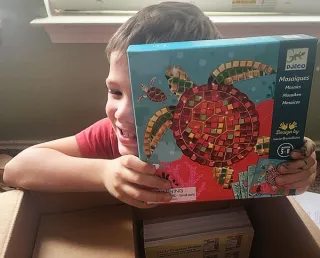Error Code 404
Oh no! We couldn't find that!
The page you're looking for doesn't exist or may have been moved. Please try one of the helpful links below.

We’re off Dec 24–Jan 4 celebrating the holidays and Timberdoodle’s 40th Anniversary! A small rescue squad is on duty—email mail@timberdoodle.com if you need us.
The page you're looking for doesn't exist or may have been moved. Please try one of the helpful links below.

Stay in the loop without the inbox overload! Our newsletter delivers can’t-miss deals, timely updates, and a sprinkle of fun—never spam, always awesome.
